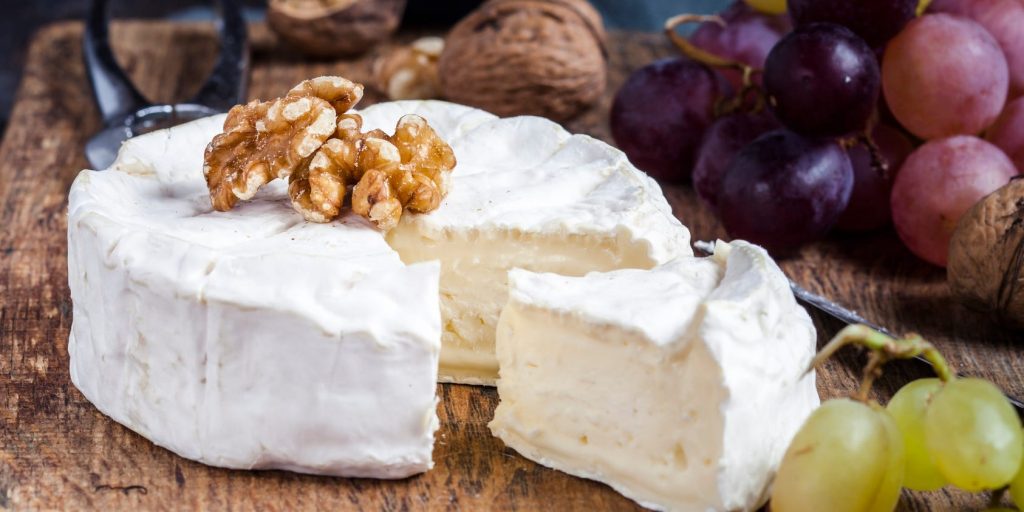
Westend61/Getty Images
- Opting for a low-carb, high-protein diet may help you lose weight and manage blood sugar.
- Some healthy high-protein, low-carb foods include salmon, eggs, and Greek yogurt.
- For high-protein, low-carb snacks, choose string cheese, almonds, or sunflower seeds.
- Visit Insider's Health Reference library for more advice.
Consuming complex carbohydrates, like fiber, is an important part of a healthy diet. However, eating high amounts of processed, simple carbs – like baked goods, sweet drinks, and refined grains – can increase a person's risk of type 2 diabetes and heart disease.
Therefore, some opt for a low-carb, high-protein diet, which may help with maintaining a healthy weight or controlling blood sugar levels.
Typically low-carb foods are anything you can consume in moderation that won't tip you over 135 grams for the day. Meanwhile, a high-protein food is one that contains about 10 grams per serving, says Angie Asche, RDN, founder of Eleat Sports Nutrition.
Here are eight low-carb, high-protein foods to try incorporating into your diet:
1. Low-fat plain Greek yogurt
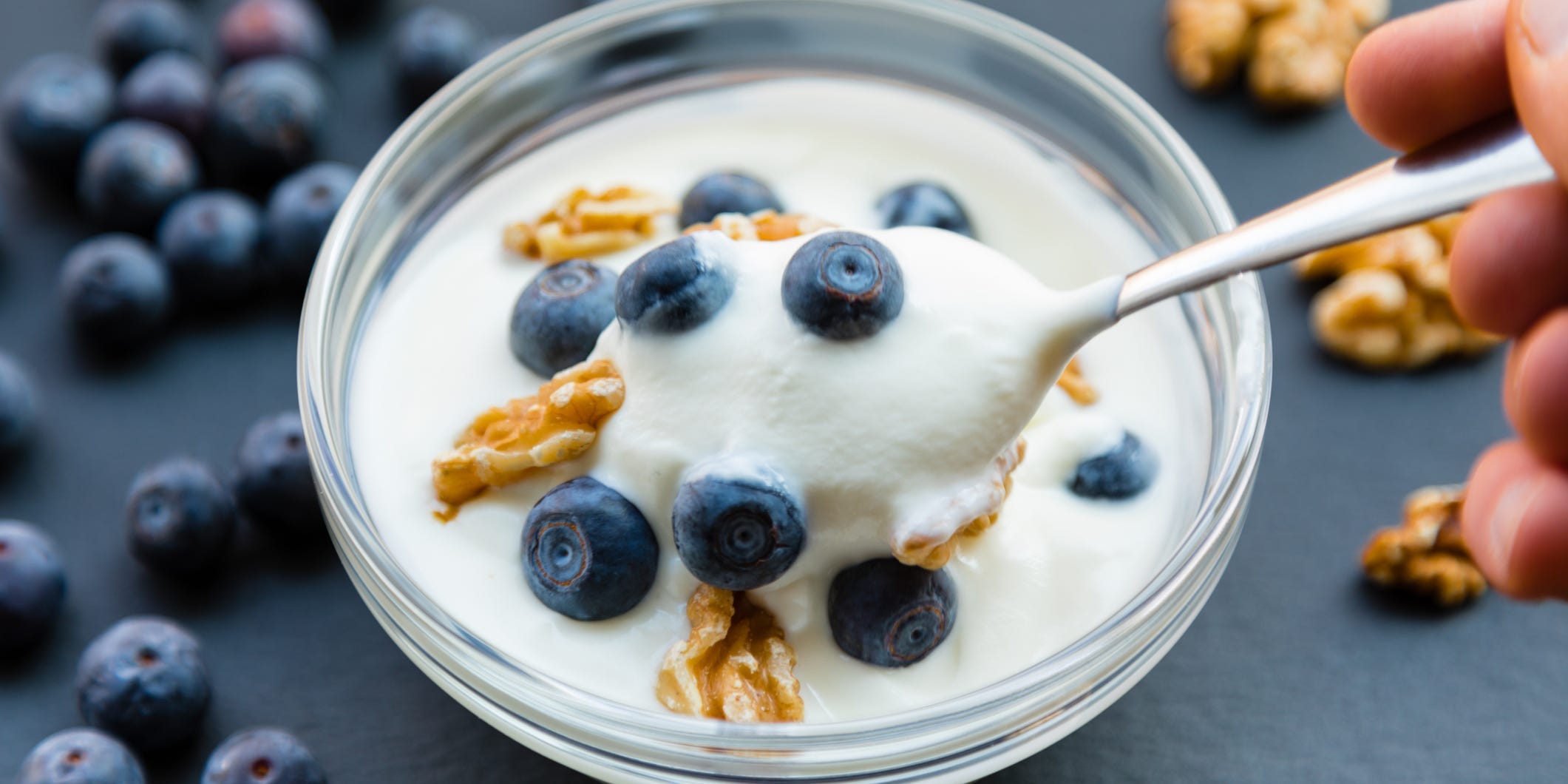
IGphotography/Getty Images
Plain Greek yogurt is creamy and has a slightly tangy or sour taste. You can enjoy it on its own with fruit and nuts or use it as a substitute for sour cream on tacos. Greek yogurt also makes a good base for dressings, smoothies, and other recipes requiring milk or cream, says Cesar Sauza, a registered dietitian with AltaMed Health Services.
One cup of plain, nonfat Greek yogurt contains:
2. Almonds
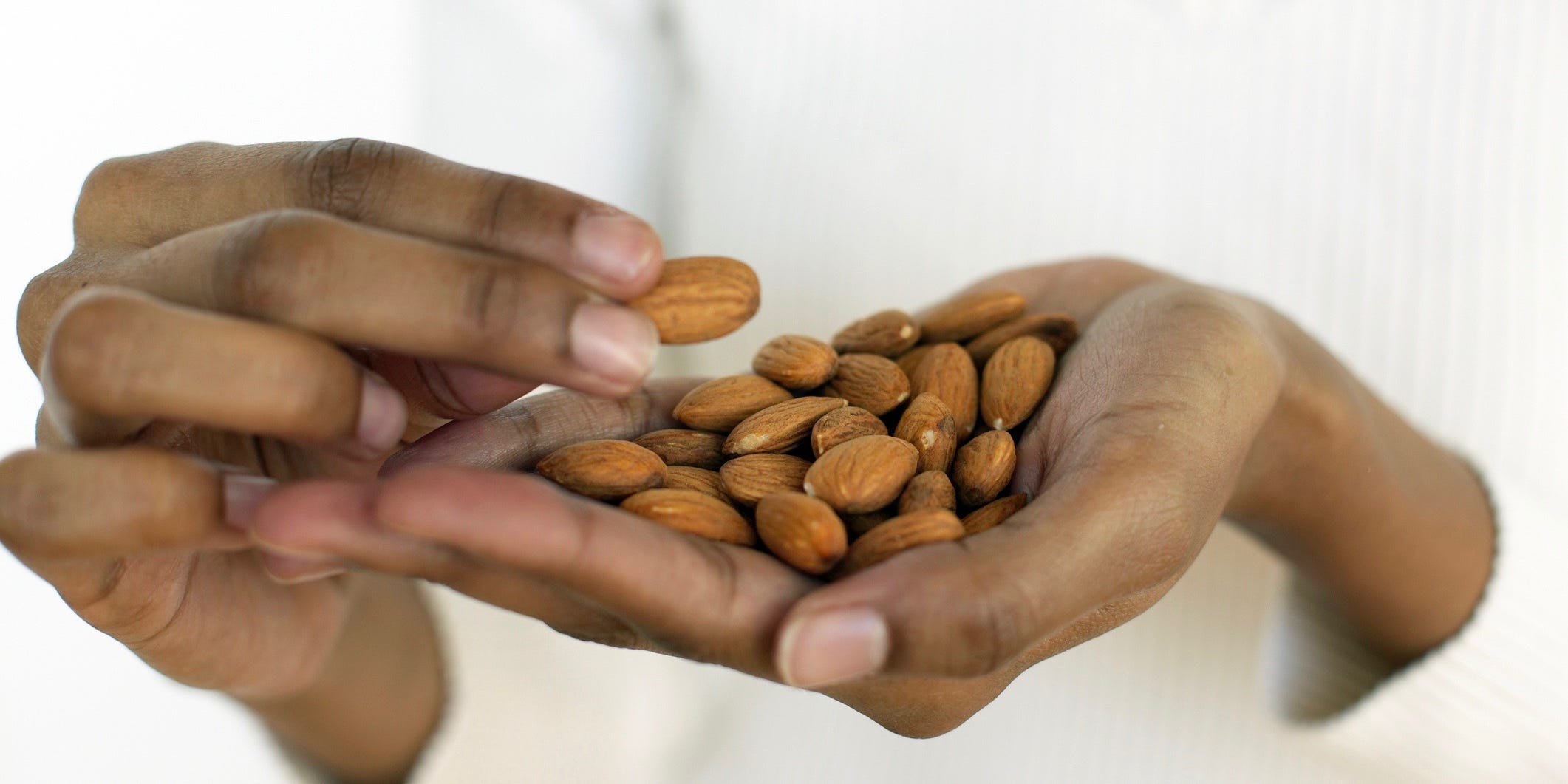
Stephen Welstead/Getty Images
Almonds may be high in calories, but they are also a great source of unsaturated fat, which can help lower cholesterol. Sprinkle them on top of oatmeal or pair them with cheese and raw vegetables for a snack.
One ounce of almonds contains:
- 164 calories
- 6 g of carbohydrates (2% DV)
- 6 g of protein (12% DV)
3. Sunflower seeds
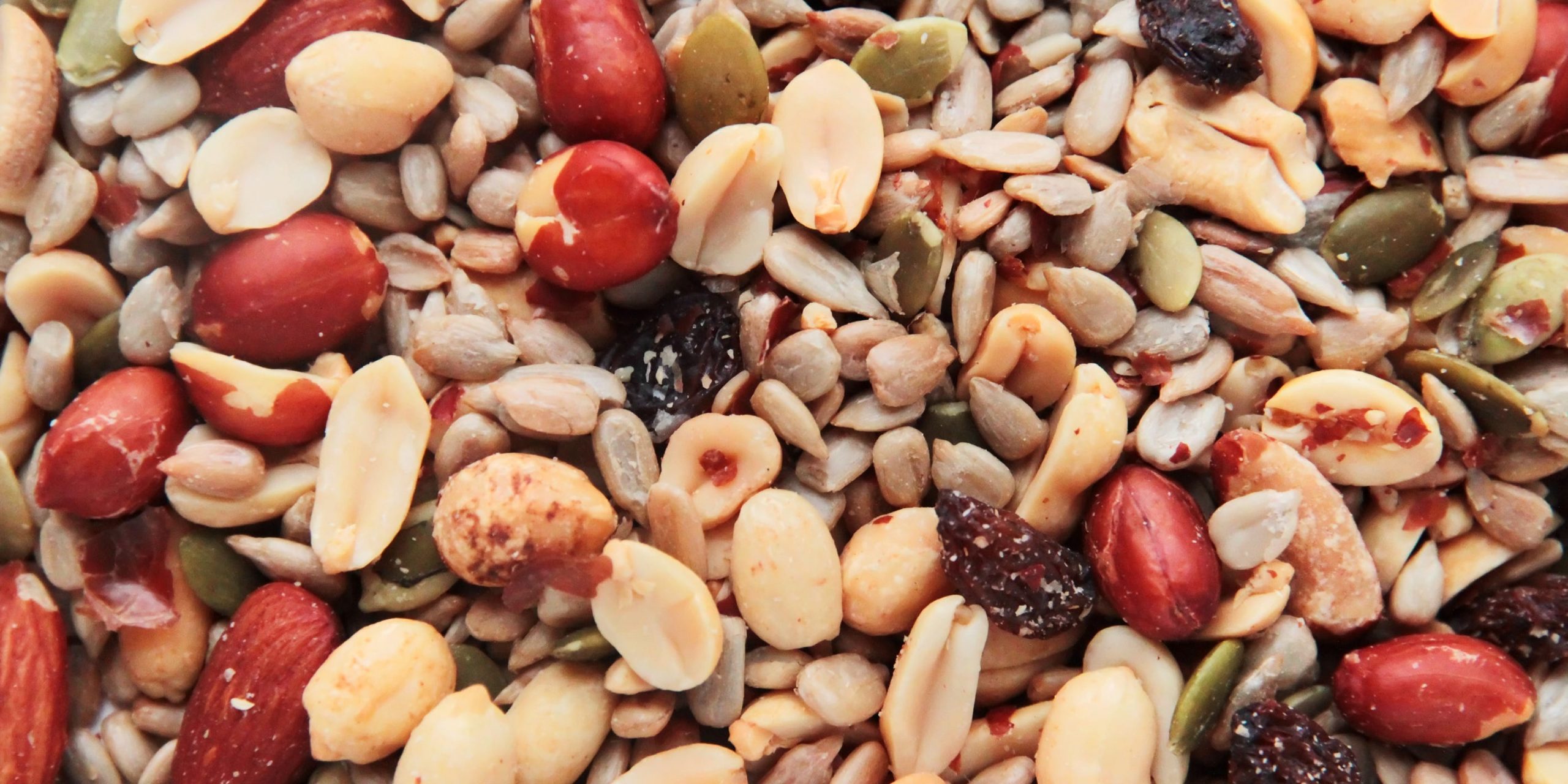
EricFerguson/Getty Images
Like almonds, sunflower seeds are high in calories and rich in healthy fats, which makes them filling, Sauza says. They also add a crunchy texture to salads, yogurt, or sprinkled on top of fruit as a snack.
One-fourth cup of sunflower seeds contains:
- 208 calories
- 5 g of carbohydrates (1.8% DV)
- 6 g of protein (12% DV)
4. Canned tuna
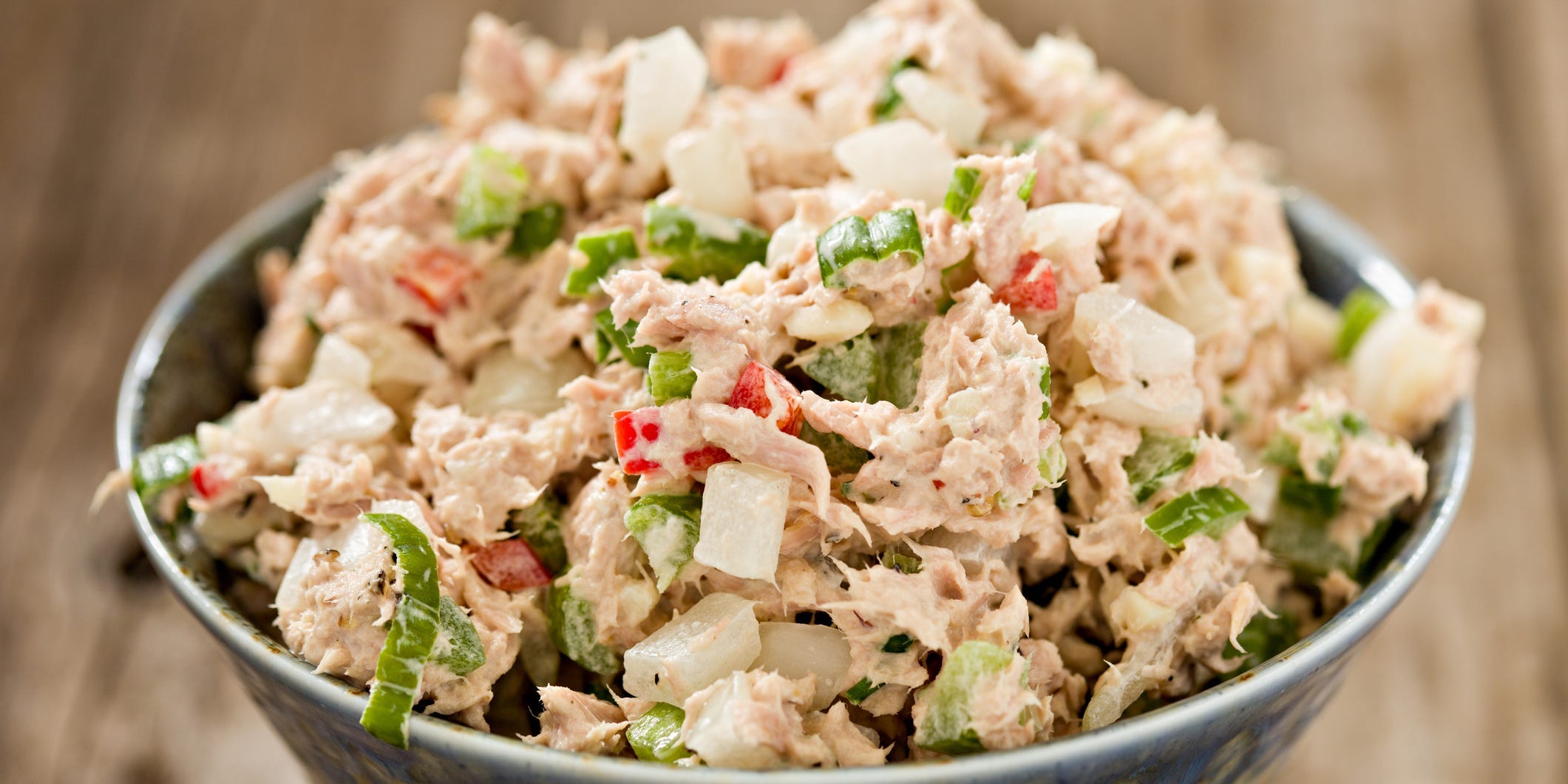
DebbiSmirnoff/Getty Images
Tuna is a good source of heart-healthy omega-3 fatty acids, Sauza says. Eat it with chopped vegetables, like tomato, onion, cilantro, and peppers, or by itself with a little bit of lime and salt.
One can of tuna contains:
- 121 calories
- 0.1 g of carbohydrates (0% DV)
- 27 g of protein (54% DV)
5. Salmon
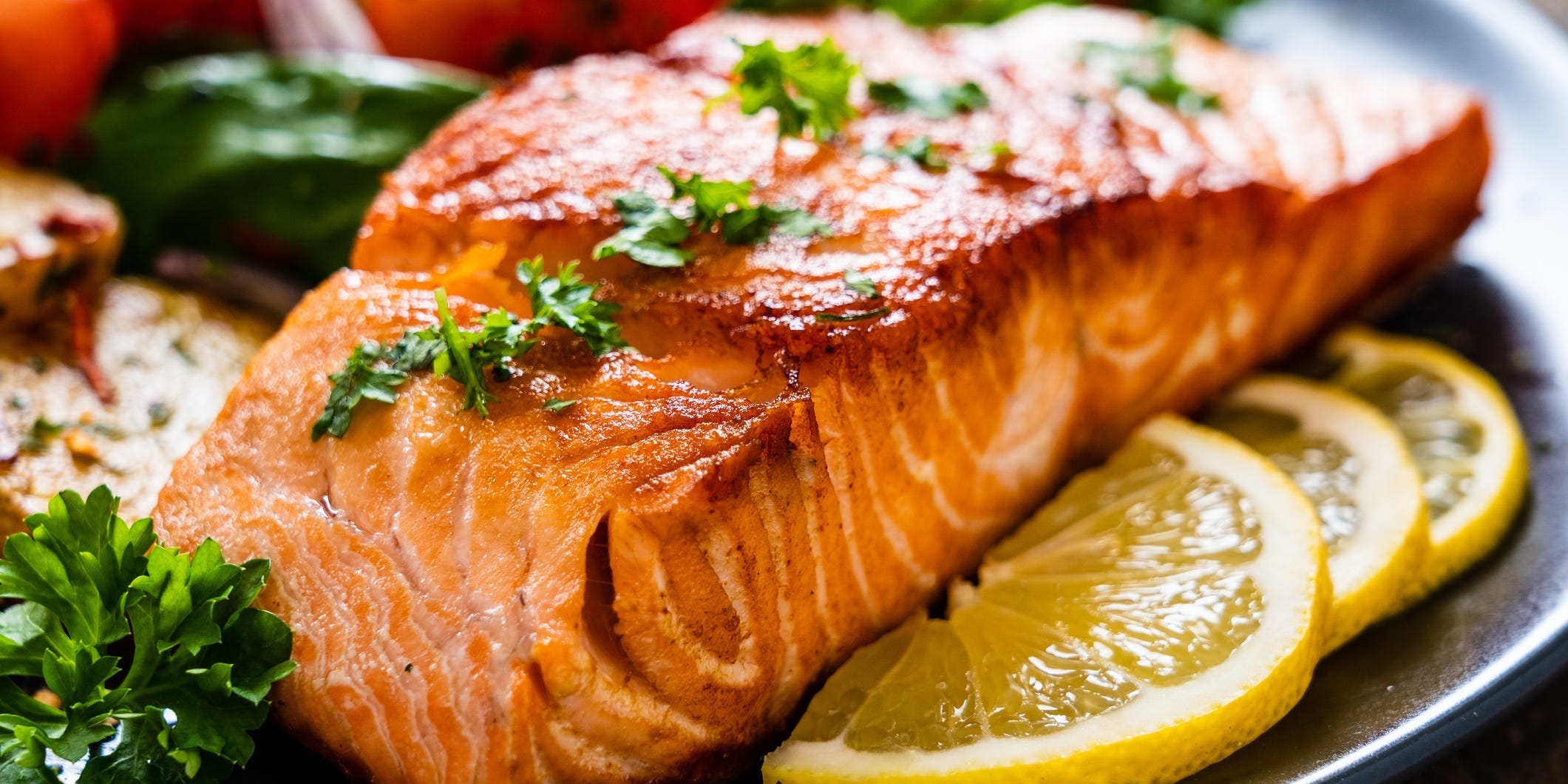
gbh007/Getty Images
Salmon has essentially no carbohydrates and is also a good source of vitamin B12. Grill or oven-bake salmon and serve with roasted veggies for a hearty meal. Alternatively, you can buy smoked salmon at the store to eat plain or add to salads.
Three ounces of salmon contains:
- 108 calories
- 0 grams of carbohydrates (0% DV)
- 17 g of protein (34% DV)
6. Eggs

LauriPatterson/Getty Images
Eggs are packed with nutrients and they're incredibly versatile. Scramble them with veggies for breakfast or hard boil them to keep in the fridge for snacks.
One egg contains:
- 78 calories
- 0.5 g of carbohydrates (0% DV)
- 6 g of protein, which is about (12% DV)
7. Cheese

bhofack2/ Getty Images
String cheese is a great low-carb option to eat on the go. You can also pair cheese with meat or veggies for lunch or dinner.
One stick of mozzarella string cheese contains:
- 79 calories
- 0.9 g of carbohydrates (0% DV)
- 8 g of protein (16% DV)
8. Tofu

Nevena Zdravic / EyeEm/ Getty Images
Soy foods, like tofu and tempeh, are good sources of protein - especially for vegetarians. Stir-fry tofu with vegetables for a yummy lunch or dinner.
Three ounces of tofu contains:
- 71 calories
- 0.8 g of carbohydrates (0% DV)
- 9 g of protein (18% DV)
Insider's takeaway
Eating a high protein, low-carb diet can help you maintain a healthy weight and manage blood sugar levels, but it isn't for everyone, Sauza says. Excessive protein in the diet could damage your liver or kidneys if done long-term, and extreme low-carb diets like the keto diet should not be done without the supervision of a dietitian or medical professional.
While increasing your protein intake and limiting carbohydrates can be part of a healthy diet, eating nutrient-rich foods from all food groups is more likely to ensure you're getting the vitamins and minerals you need.
